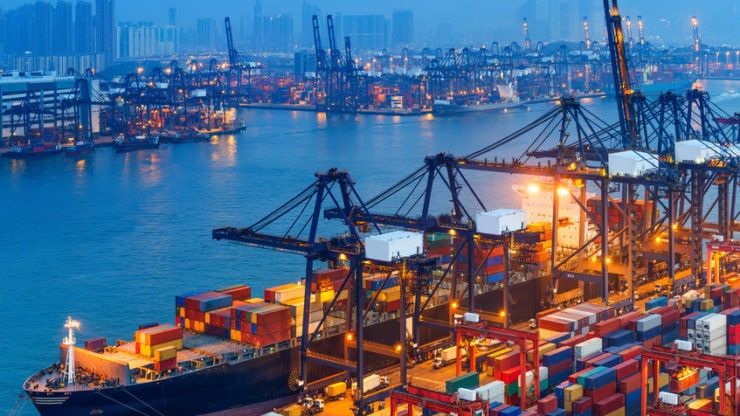Dockworkers on the East Coast and Gulf of Mexico launched a massive strike on Tuesday, freezing port operations and causing significant economic disruptions.
The strike comes just five weeks before a national election and threatens to have a profound impact on the US economy, with the potential to cost hundreds of millions of dollars each day.
Ports handling over half of the country’s container cargo are now at a standstill, with ships idling offshore and shipping containers piling up at key terminals.
Economists predict escalating economic damage the longer the strike continues, and industries nationwide are bracing for widespread supply chain disruptions.
Breakdown in negotiations
The strike stems from unresolved contract negotiations between the International Longshoremen’s Association (ILA), representing 47,000 dockworkers, and the US Maritime Alliance (USMX), which represents port operators and shipping companies.
Despite a last-minute offer of 50% wage increases from USMX, talks stalled as the union rejected the proposal, accusing shipping companies of hoarding profits while offering unacceptable wage packages.
The union stated:
The Ocean Carriers represented by USMX want to enjoy rich billion-dollar profits that they are making in 2024, while they offer ILA Longshore Workers an unacceptable wage package that we reject.
Efforts to resolve the dispute have yet to yield results, despite the White House confirming it has been working tirelessly over the weekend to avert the strike.
Economic ripple effects
The strike is the first by the ILA since 1977, and it arrives amid a wave of union activity across various sectors, including autoworkers and Hollywood.
While the immediate economic impact may be moderate, experts warn that if the strike drags on, it could cause widespread shortages and significant price increases.
Ports in New York, Baltimore, Savannah, and Houston are among those most affected.
With major shipping hubs closed, industries reliant on just-in-time deliveries, like auto manufacturing, could face crippling delays.
Perishable goods like food are also at risk, as 75% of the nation’s banana imports pass through these ports.
Calls for intervention grow
Business groups and Republicans in Congress are pressuring President Biden to use emergency powers under the 1947 Taft-Hartley Act to end the strike, but Biden has dismissed the idea.
“It’s collective bargaining. I don’t believe in Taft-Hartley,” he said.
Analysts predict the White House will eventually need to intervene, especially if the economic toll mounts and shortages hit consumers, according to a report in Washington Post.
The Conference Board estimates that a week-long strike could cause $3.78 billion in losses.
With negotiations deadlocked, concerns over potential shortages and price hikes are growing, as the clock ticks toward a resolution.
The post East Coast port strike halts shipping, threatens US economy appeared first on Invezz

